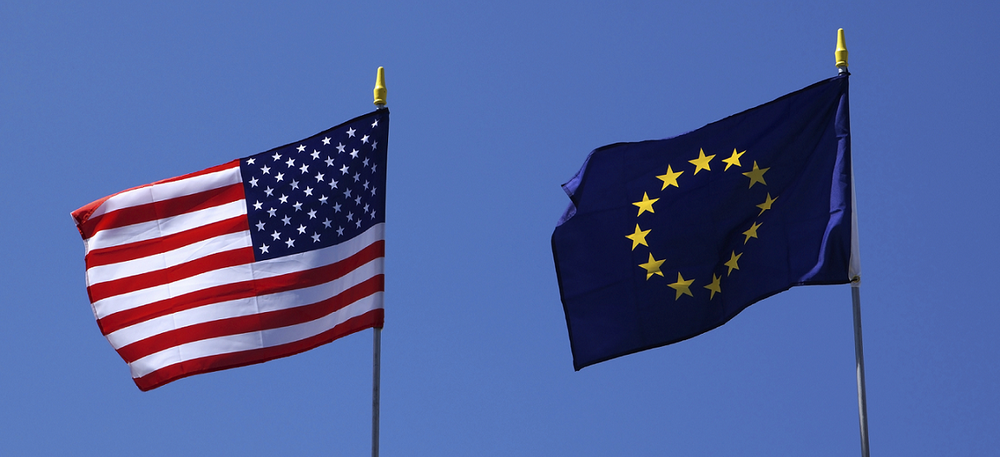
Brian Dooley is a Senior Advisor at Washington-based NGO Human Rights First and Honorary Professor of Practice at Queen’s University, Belfast. He specializes in working with human rights activists in war and other conflict zones and is a regular visitor to Kharkiv.
The Mid-Atlantic Ridge runs north-south along the sea bed, with 16,000 km of mountains, splitting the American side from the European side. Like the political differences between the US and the EU, it’s mostly covered up, but it’s always there, occasionally breaking to the surface.
Despite constant talk of a special relationship and long-standing alliance, the interests of Western Europe and the United States have not always aligned. After all, the American national anthem still commemorates a military victory over Britain in 1812. The current maneuvering around the Ukraine peace talks has brought long-standing, deep-rooted tensions between the US and Western Europe back to the surface.
Russia's invasions of Ukraine continue to strain these relations. Instead of standing alongside Western European and Ukrainian leaders against Putin, Trump is positioning himself to be a mediator, sitting between them to work out a compromise deal.
After meeting with Putin in Alaska, Trump quickly abandoned his support for a ceasefire as a prelude to a peace deal, something the European leaders remain united in pushing for. Europe is now looking to the US for security guarantees, which so far look very vague and ultimately depend on Trump's mood swings.
This all leaves the transatlantic alliance in a familiar place—smooth on the surface with rocky terrain underneath (the Mid-Atlantic Rift under the ocean is actually growing by about 2.5 centimetres a year).
However, Europe's overreliance on the US for defence is its own fault, and it should be known that Washington is not always a reliable military ally.
The US refused to join Western Europe in the war against Nazi Germany throughout 1939 and 1940, and only when Japan attacked it in December 1941 did it join the Allies (and only then declared war on Japan; it was Germany that then declared war on the US).
In 1956, Washington humiliated Britain and France when it refused to join their military response to Egypt's nationalisation of the Suez Canal. It threatened its European allies with sanctions unless they withdrew, so they did.
In the following decades, Washington was furious at the British refusal to send troops to help the US in the war in Vietnam. I remember as a teenager being one of millions of Europeans horrified at President Reagan's talk of the possibility of a limited nuclear war in Europe, where the Soviet Union and the US might use Western Europe as a battlefield.
And while a majority of people in Britain supported the British army joining the US in 2003 during the invasion of Iraq, less than a quarter of British people now think it was a good idea.
But European leaders have only themselves to blame for taking so long to find a unified voice over Ukraine, wasting months and years deciding what their line should be, and waking up very late to the threat from Russia.
It's a familiar scenario. In fact, a future American president identified it clearly as a student in his 20s. In 1940, John F. Kennedy published his undergraduate thesis, Why England Slept, on why Britain was so slow to prepare for war against Nazi Germany. Democracies, he argued, are slow to react to invading dictators.
"For the short term, democracy has great weaknesses… a democracy will be two years behind a dictatorship…in preparation for modern warfare."
He also noted how some of Britain's elites had sympathised with the Nazi regime, making it harder to prepare for war against Hitler.
Nearly a century later, the lesson still resonates. What this all means for a peace deal for Ukraine isn't certain yet, but a few things are clear:
What Western Europe wants and what Washington wants aren't always the same.
Whoever replaces Trump as president in 2029 might not share his enthusiasm for any deal worked out now.
Putin knows Trump’s history, understands this dynamic all too well, and will use every chance to exploit transatlantic divisions.
Opinion pieces reflect the thoughts of their authors and do not reflect Gwara Media’s views.
This August, Gwara celebrated its 10th anniversary. Whatever awaits Ukraine in Russia’s war, our Kharkiv-based newsroom plans to keep reporting on it. Please, support our journalism by buying us a coffee or subscribing to our Patreon.
The post Opinion: US and Europe’s divide on Ukraine appeared first on Gwara Media.
